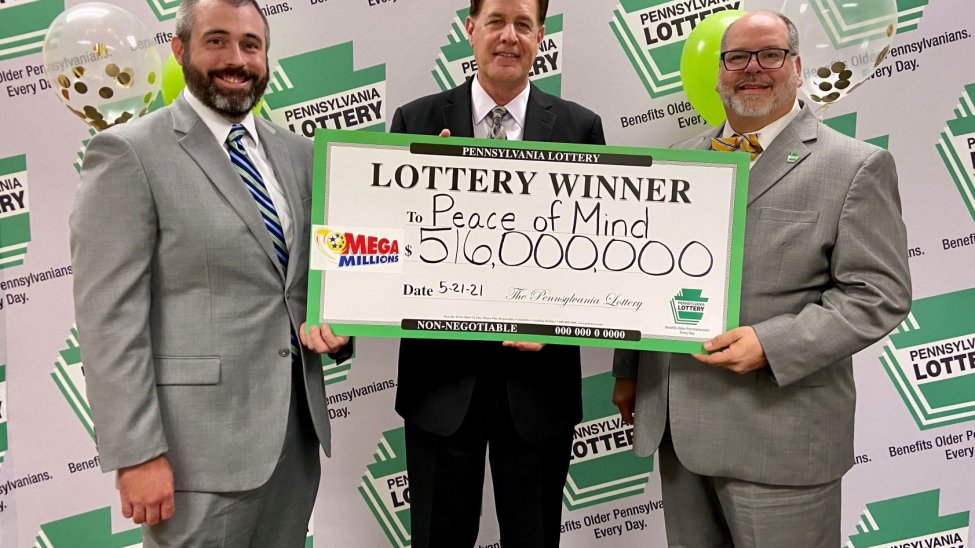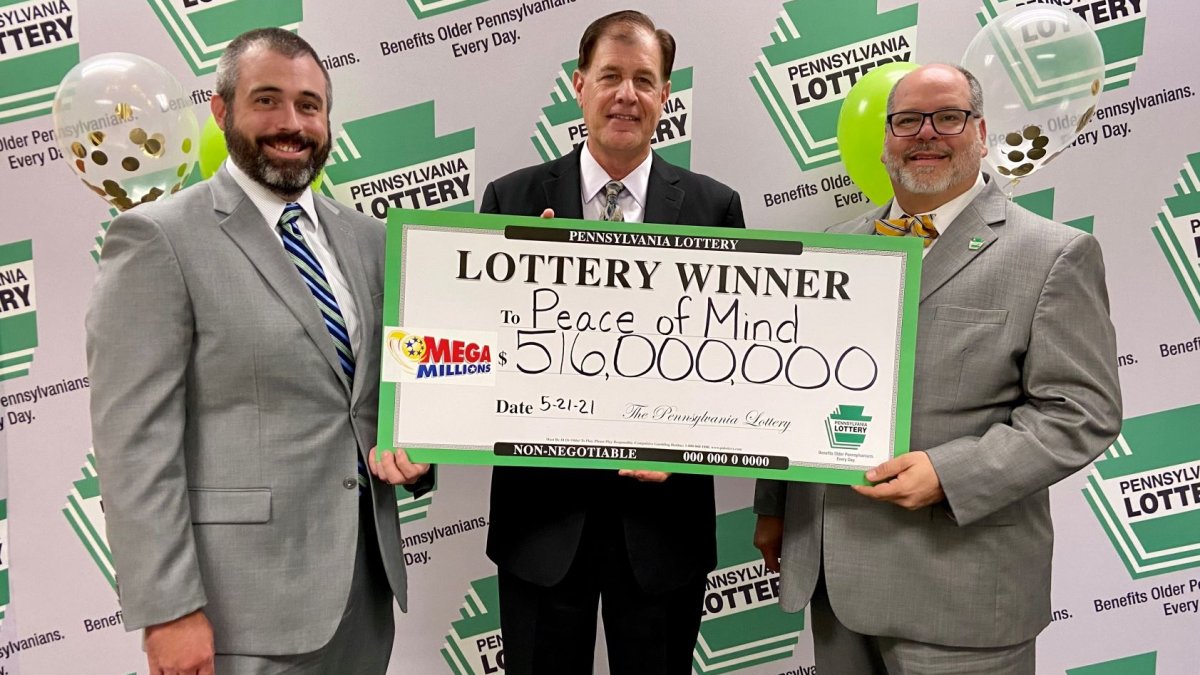$516M Mega Millions Jackpot Winners in Bucks Co. Claim Prize, Remain Nameless
The winners of the biggest lottery jackpot won in Pennsylvania claimed their millions Friday and stayed anonymous in the process.
The winning ticket in
May 21's $516 million Mega Millions lottery drawing was
sold at the 7-Eleven on Trenton Road in Levittown, Bucks County. The ticket matched all five white balls drawn, 6-9-17-18-48, and the yellow Mega Ball 8. The ticket is worth an estimated annuity value of $516 million or just over $349 million in cash, lottery officials said.
The Peace of Mind Trust, a five-member group, opted for the lump sum. The after-tax prize amount wound up being $254,233,980, the Pennsylvania Lottery said.
The massive amount of money isn't lost on the winners and is partly why they don't want their names revealed.
“This is life-changing generational money," attorneys Kurt Panouses, of Florida-based Panouses Law Firm, and Christopher Mahoney, of Pennsylvania's Stuckert & Yates, said in a joint statement provided to the Pennsylvania Lottery. "The winners live in small communities in eastern Pennsylvania and desire to keep their lives as normal as possible. Maintaining anonymity is key to ensuring that normalcy."
The winners of the biggest lottery jackpot won in Pennsylvania claimed their millions Friday and stayed anonymous in the process.

www.nbcphiladelphia.com
this is in PA....
Are Lottery Winners Required to Reveal Their Identities?
Winners of the Pennsylvania lottery must fill out a
claim form to receive their prizes. This claim form requires all lottery winners to reveal their identities. The Pennsylvania lottery commission reveals at least some identifying information about lottery winners to the public.
And yet there is an open question about whether lottery winners can get around this policy. With all of the misfortune and criminal acts that can befall lottery winners, lawyers have sought a loophole that will allow lottery winners to maintain at least some control over who can know about their winnings.
With this in mind, here is some information about the rules and policies about disclosing the identities of lottery winners.
Lottery Winners and Anonymity
You might believe that a lottery winner would want everyone to know about their good fortune. But anonymity can have several benefits for lottery winners, including:
SAFETY
One of the most important considerations for lottery winners is safety. If the world knows about your financial windfall, someone may try to rob you, kidnap you, or even murder you.
By remaining anonymous, you reduce the chances that someone will target you for a violent crime.
EXTORTION
Perhaps you have something in your past that you would prefer to keep secret. Once you hit the lottery, you could become the target of extortionists. These criminals may try to force you to pay on the threat of releasing negative information about you.
SHAKEDOWNS
When people know you have money, they can get tempted to try to take some of it away from you. People could file false lawsuits against you to try to push you into paying a nuisance settlement to make the lawsuit go away.
Alternatively, people could try to stage a phony accident so they could attempt to file a
personal injury claim against you. Again, they hope that you will pay a settlement to get rid of the claim.
SOLICITATIONS
Lottery winners are often besieged by friends, family members, and even strangers who ask for money. These solicitations can ruin relationships when the lottery winner rejects the requests.
The Pennsylvania Lottery Policy
Pennsylvania explicitly states that it must collect a
lottery winner’s personal information and that it must disclose at least some of that information to the public. The lottery commission gives several reasons for this policy, including:
- Compliance with Pennsylvania’s open records laws
- Transparency to show the public that the games can be won
- Increasing lottery play through promotions showing past winners
To claim your prize, you must disclose your name, address, birth date, and Social Security number. The lottery commission can announce that you
won a prize and disclose:
- Your name or some part of your name
- City and county of residence
- Game name
- Date of win
- Prize amount
The lottery commission’s recent practice has been to disclose a winner’s first
name, last initial, and county of residence. For example, a typical winner’s announcement might say that John D. of Franklin County won $10,000.
Possible Loopholes to Maintain Anonymity
Pennsylvania’s lottery rules require the commission to gather and disclose a lottery winner’s identity. But the rules do not require the lottery winner to be a natural person. The lottery rules allow partnerships to claim a lottery prize.
This would suggest that a trust or limited liability company (LLC) might be able to claim a lottery prize in Pennsylvania. This would shield the lottery winner’s identity from both the lottery commission and the public.
To do this, a lottery winner would have a lawyer form an entity. The winner would then transfer ownership of the winning ticket to the entity. As the legal owner of the ticket, the entity would claim the prize.
The lottery commission could collect and disclose the entity’s identifying information. But since the person who originally bought the ticket would no longer own it, there would be no reason for the lottery commission to collect or disclose that person’s identifying information.
Pennsylvania requires lottery winners to reveal their identities. Learn why the lottery collects this information and possible loopholes to stay anonymous.

www.klnivenlaw.com











